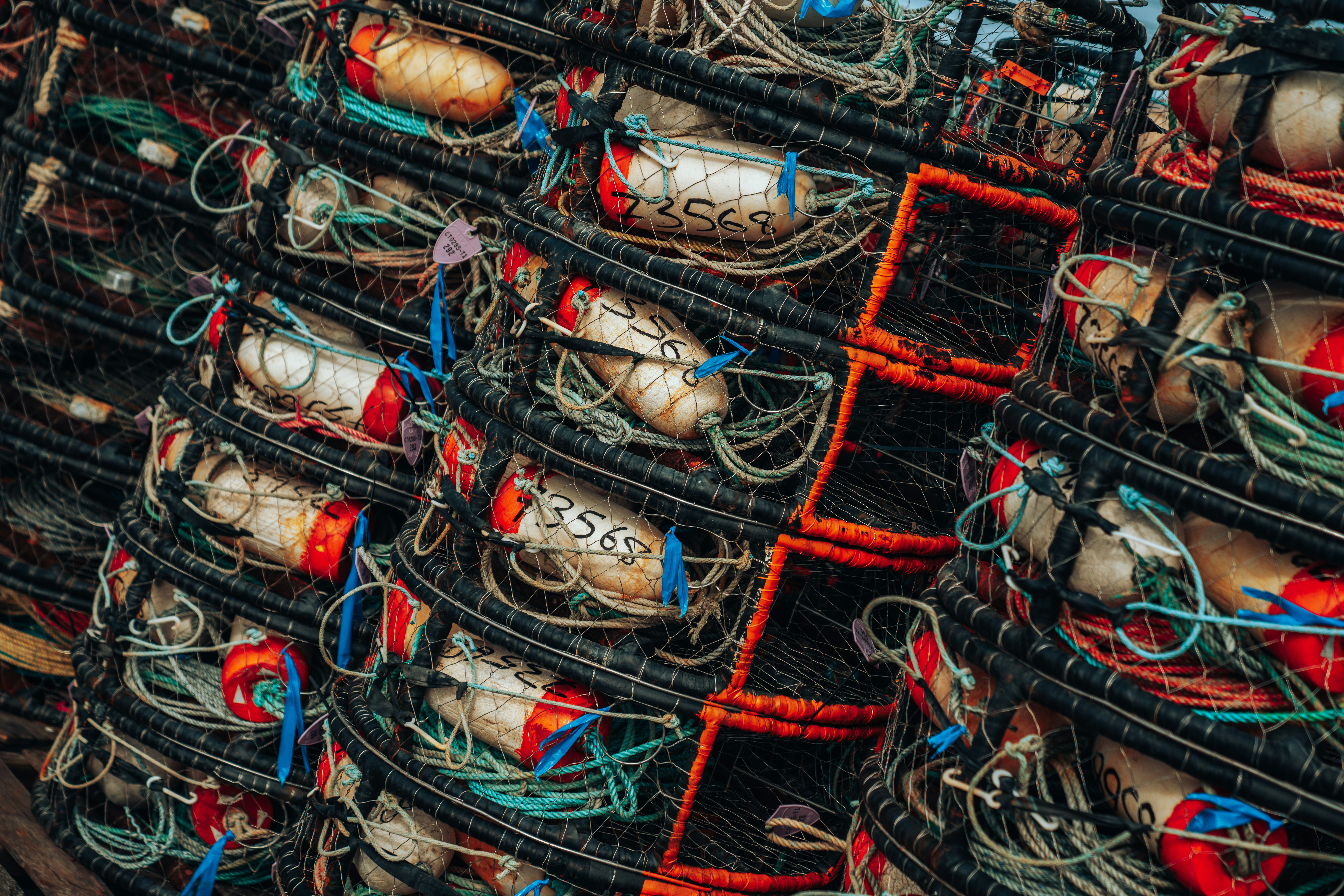Related to Tags (1) (Content)
Authors
Sarah White
Worldwide it is estimated that anywhere between 37 and 120 billion fish are killed on commercial farms each year, with another trillion fish caught and killed in the wild.

Photo by Jo-Anne McArthur on Unsplash
Wild caught fish are speared or more often dragged out of the water in huge nets. Many of the fish caught in these nets will be crushed or suffocated to death, and for the ones that survive the net a slower death of either freezing or live dissection awaits them. Bycatch (marine species caught unintentionally whilst fishing) is another deadly consequence of commercial fishing. Over 100 million sharks and 300,000 whales and dolphins die each year as a result of bycatch, this is because the animals are often dead or dying by the time they are thrown back in to the ocean. Shrimp trawlers tend to be one of the worst offenders for bycatch, with around two-thirds of what they catch being discarded back in to the ocean.

Fish Farms.
Fish farms are similar to those on land but with even less protection, farmed fish are often rife with sea-lice parasites, with salmon being one of the worst species affected. Thousands of fish spend their lives crammed in to either a floating net in the ocean or a concrete tank, often with dead fish floating in tanks with them. Some argue that fish farms are more sustainable than wild fishing. But the fish on these farms are fed fishmeal, which requires huge quantities of wild fish to produce — meaning that fish farming is no different than wild fishing.

Photo by Kristin Snippe on Unsplash
Plastic Pollution.
We hear a lot about our oceans being polluted with plastic, often accompanied with scenes of oceans or beaches full of plastic water bottles etc. and whilst this is a major problem it is not the greatest source of plastic in the ocean, that is discarded fishing gear. Each year more than 640,000 tonnes of nets, lines, pots and traps used in commercial fishing are dumped in to the ocean. This is known as ghost fishing gear and is incredibly deadly to marine life, entangling all manner of marine life from mammals, birds, turtles, and sharks, subjecting them to a slow and painful death through exhaustion and suffocation. Ghost fishing gear also damages coral reefs and other marine habitats.
People.
Seaspiracy, the Netflix documentary that came out earlier this year brought to light the potential dangers that industrial fishing poses to people. In the documentary we see interviews with workers in which they talk about being forced to work on illegal fishing boats for years, with the threat of death hanging over them if they ever tried to escape. Although those workers spoke anonymously, others have gone on the record about this use of forced labour. Workers whether on legal or illegal fishing boats are subjected to perilous conditions, with around 24,000 dying on the job every year.
So in summary, commercial fishing is damaging not only to marine life but also the rest of our planet.
